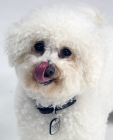Bichon Frise
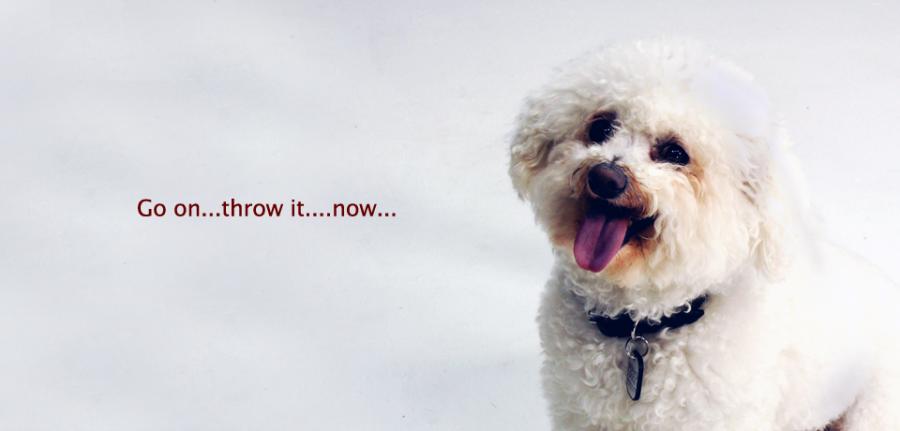
In my own words
I just love to make people laugh, particularly my owners. Every day I do something to put a smile on their faces; it’s just part of my nature! My ancestors used to be in the circus you know? I think that’s where I get it from. I love to be silly and play games if it makes my family happy. Everyone knows I have a bubbly personality and I think that’s a fantastic reputation to have, don’t you?
It’s fair to say I’m pretty lively and I really enjoy a daily walk to burn up some energy – it makes me feel a lot more relaxed for the rest of the day. I’m not hyperactive though, honest! I’m a cuddly little lap dog too and love playing gentle games with the kidsMy ideal owner(s)
Families
Couples
Older people
Town or country folk
People who enjoy a daily walk
What they say about me
Charming
Sweet
Happy
Playful
Sensitive
Intelligent
Please read on to find out more about me, and whether I’ll be someone you’ll be happy to live with for the next 15 years!
Is this Bichon Frise for you?
Test your knowledge about the Bichon Frise
Information essential about the Bichon Frise
Kennel Club Group: Toy
Size:
Small: Weight Male 7 – 12 lbs (3 – 5 kg) Female 7 - 12 lbs (3 – 5 kg)
Height Male 9 – 12” (23 – 30 cm) Females 9 – 11” (23 – 28 cm)Popularity:
The Bichon Frise is a very popular breed, particularly in the UK and United States. Its easy going personality, loving character and trainability combine with the fact that the breed is non-shedding and suitable for allergy sufferers to make it an extremely popular pet.
Breed History:
The Bichon Frise originates from Spain, where it can be traced back to the 1200s. It is thought that the breed is a cross between the Barbet Water Spaniel and the Standard Poodle. The Bichon Frise became extremely popular among sailors and merchants who would take the little dogs on board their ships as companions on journeys. Due to their history on boats, Bichon Frises are known to love water.
The Bichon Frise was taken all over Europe by the sailors who kept them as pets, and were often traded with locals and merchants on other countries. In the 14th Century the breed became a favourite of Italian nobility and they were frequently seen with their owners in Italian courts sporting a lion cut, as was the fashion for dogs at the time.
During the French Renaissance and Henry III’s reign in the 1500s the Bichon Frise enjoyed a surge in popularity in France. This boost in popularity would continue during the reign of Napoleon III, but waned until the 1800s when Bichons were considered to be common and were often seen as stray dogs or companions of street entertainers or circus performers.
In 1933 the Bichon Frise breed standard was created and the dogs once again found themselves in the limelight. A little over twenty years later, in 1955 the first Bichon Frises were brought to America and a year later a litter was born in the country. The breed has continued to be popular amongst American households ever since.
Character:
The Bichon Frise has a reputation for being a happy little dog with bags of character. They are cheerful, charming and bubbly pets and are known for putting a smile on everyone’s faces with their lively and merry personalities. If you want an affectionate and playful pup which also knows to respect your boundaries and can be gentle and sensitive, then the Bichon Frise could be for you. Bichons make wonderful family pets as they are well balanced, with an even temperament and tolerant nature, so they are superb with children as they love to play but won’t get too carried away. The Bichon Frise will also do well in a household with other pets as they were bred to be companions and love all kinds of company. You can expect your Bichon Frise to be a close friend, as he won’t want to leave your side. This is a breed which adores being around his owners, so the Bichon Frise is best suited to owners which will make him feel like part of the family and will cater to his social needs by giving him plenty of affection and attention.
Temperament:
Despite the Bichon Frise’s small size, they are an active and energetic breed which needs plenty of exercise. A daily walk will keep your Bichon Frise happy, healthy and better behaved. Plenty of play will also give him the exercise he needs, but should not be a replacement for a good walk once a day. Your Bichon Frise is an easy dog to live with; he adores human company and is intelligent and loving. His easy going and happy temperament makes the Bichon Frise a pleasure to take care of, but he is a sociable creature and needs to be around people in order to feel secure and happy. The Bichon Frise should not be left on his own for long periods of time as it will cause him distress. Although the Bichon Frise is not a yappy dog, like many small breeds, he does make a good watch dog and will raise the alarm if he senses trouble. Once used as circus dogs, Bichon Frises are easily trainable and enjoy learning tricks. However, the Bichon Frise can be prone to small dog syndrome which is caused by humans allowing the dog to get away with dominant behaviour. This can be prevented by showing your Bichon Frise that you are in charge and providing calm, confident and consistent training. With daily walks, training and showing your pet that you are the boss, you will find that your Bichon Frise is a calm, self-assured and charming pet.
Conformation:
The Bichon Frise is a small dog with a sturdy frame. The body had a rounded appearance with straight legs. The skull is somewhat rounded with a short muzzle that has a fairly pronounced stop and teeth which meet in a scissor bite. Small round eyes can be black or dark brown and the ears are dropped. The tail is carried up and over the back. The Bichon Frise has a soft double coat with a dense undercoat and curly, coarser outer coat.
Colour:
The Bichon Frise’s coat can come in solid white, cream, grey or apricot although white is the preferred colour for show dogs.
Training:
Your Bichon Frise is smart as a button! He loves to learn and enjoys training providing it is kept fun and interesting. Your Bichon Frise has a natural predisposition for learning new tricks and will enjoy the bonding experience of a training session. Bichon Frises love to please their owners, making them a joy to train.
Care:
The Bichon Frise has a non-shedding coat which makes the breed suitable for allergy sufferers. The coat needs clipping by a professional groomer every 4 – 6 weeks and the hair around the eyes and ears may need trimming more often. The hair around the eyes should be cleaned regularly to prevent tear staining. To prevent the coat from becoming matted, you should brush your Bichon Frise every day.
Health:
The Bichon Frise is generally a healthy and hardy breed with a lifespan of 12-15 years, however they can be prone to some health issues including Autoimmune Haemolytic Anaemia (AIHA), a condition which sees the dog’s immune system attack its own red blood cells. Minor health concerns include watery eyes and cataracts, skin conditions, epilepsy and dislocated kneecaps. Some Bichon Frises can also be extremely sensitive to flea bites.
You may also like:
Bichon Frises looking for a home in UK »
(Interest Shown)"> (Interest Shown)" class="overviewimg"/>
(Interest Shown)" class="overviewimg"/>

If you like Bichon Frises, you may be interested in breeds of the same size »

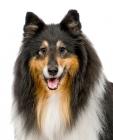
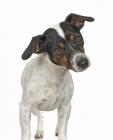
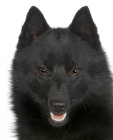
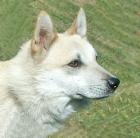
If you like Bichon Frises, you may like other breeds with similar characteristics »
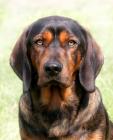
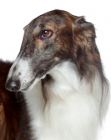


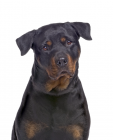
Advice on choosing your breed »
Find an animal shelter or rescue home where a Bichon Frise is waiting for a new home »
The following grid gives a fast track review which covers all breeds. You can apply it to help you decide if a Bichon Frise is suitable for you, the environment where you live, your personality and your lifestyle. On the grid, 1 = strongly disagree, and 5 = strongly agree. For example, if you are looking for a dog that likes to learn tricks, look down the list under ‘activities’ and you will see that Bichon Frises are love learning tricks, scoring 5. If you are looking for a dog that would be suitable for urban living, look under ‘role and suitability’ and you’ll see a Bichon Frise would be an excellent choice, also scoring 5. You might like to save or print off this section and keep it for reference while you check some other breeds before making your choice.
Be the first to rate this breed »
|
*PLEASE NOTE: All our breed profiles are general, and all dogs are individuals. Always talk to the breeders and meet the owners you are buying from. Try to meet the dog and its parents if it is a puppy in their home environment.








